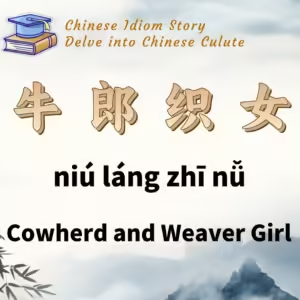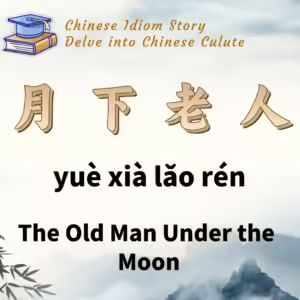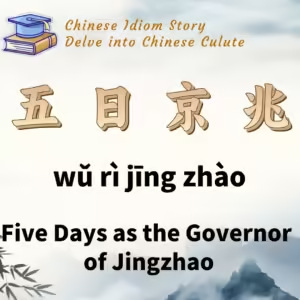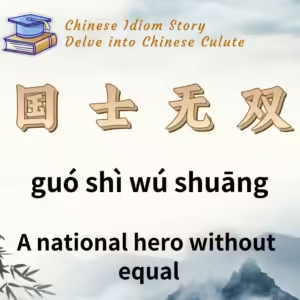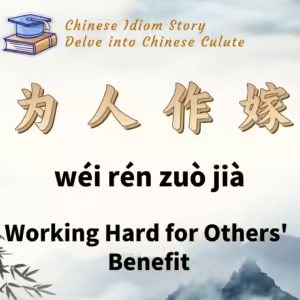
Chinese Idiom: 为人作嫁 (Wei Ren Zuo Jia)
English Translation: Working Hard for Others’ Benefit
pīn yīn: wéi rén zuò jià
Idiom Meaning: Refers to working hard or making sacrifices for the benefit of others without gaining any personal reward.
Historical Source: Records of the Grand Historian: Biographies of the Marquis of Huaiyin (史记·淮阴侯列传)
Idiom Story
Qin Taoyu, whose courtesy name was Zhongming, was a poet from Jingzhao (present-day Xi’an, Shaanxi) during the Tang Dynasty. Although not widely renowned, his poem “The Poor Girl” (《贫女》) is well-known and widely recited. The poem captures the sorrow of a poor girl who toils tirelessly to create beautiful garments, only for others to benefit from her labor. The poem’s lines are:
蓬门未识绮罗香,拟托良媒益自伤。
谁爱风流高格调?共怜时世俭梳妆。
敢将十指夸针巧,不把双眉斗画长。
苦恨年年压金线,为他人作嫁衣裳。
Translation:
In my humble home, I’ve never known the fragrance of fine silk; I entrust my fate to a matchmaker, which only increases my sorrow.
Who appreciates my graceful demeanor and high morals? Who values my simple appearance in this age?
I dare not boast of my skill with the needle, nor compete in the fashion of eyebrow drawing.
What torments me most is that every year I painstakingly embroider with gold thread, only to make garments for others to wear on their wedding day.
The poem reflects the girl’s lament over her situation—her talents and virtues are unnoticed, and all her hard work goes toward making wedding garments for others. The phrase “为他人作嫁衣裳” (making wedding clothes for others) is used to describe the frustration of working diligently for someone else’s benefit. This phrase has been simplified into the idiom “为人作嫁,” meaning to labor or make sacrifices for others without personal gain.

